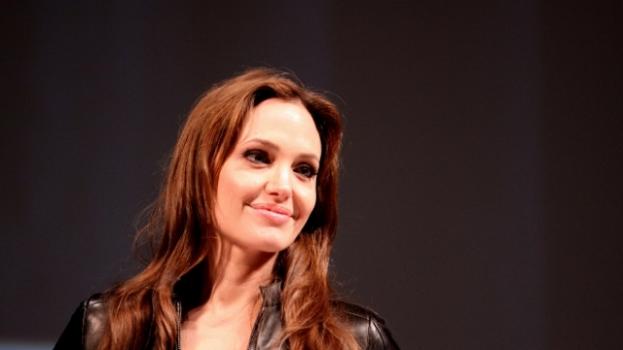A few years back, Angelina Jolie was mostly recognised as the voluptuous actress who became half of "Brangelina" with Brad Pitt, Hollywood's hottest couple and a love obsession of sorts around the world. Following their 2004 movie "Mr. & Mrs. Smith", the pair fell in love and Pitt divorced his wife of five years, A-list actress Jennifer Aniston. Fans watched in awe and tabloids devoured every glimpse of the new, outrageous love story. In 2008, People magazine allegedly paid $14 million for the first pics of the Jolie-Pitt twins, Vivienne Marcheline and Knox Leon.
But Angelina Jolie deserves to be credited for a far more important impact in two critical areas: human rights and cancer awareness, aside from her critically acclaimed work as an actress and filmmaker.
Born Angelina Jolie Voight (her father is the 70's movie star Jon Voight and her mother is actress Marcheline Bertrand), she's a Los Angeles native and initially made a few appearances in music videos before coming of age, followed by a handful of television flicks and B-grade movies. Her first big role was in HBO's biopic "Gia", in 1998, where she portrayed the supermodel who died tragically of aids when she was only 26. The breakthrough came the following year with "Girl, interrupted", for which Jolie received the Oscar for Best Supporting Actress (and infamously didn't thank co-star Winona Ryder for helping her).
Still blonde, she co-starred "Gone in 60 seconds" with Nicolas Cage, before becoming known as the incarnation of videogame legend Lara Croft in the big screen. In 2004, she portrayed the mother of Colin Farrell in "Alexander" and an assassin in "Mr. & Mrs. Smith", which sparked her love relationship with Brad Pitt. No stranger to controversy (she's openly bisexual), Jolie had been married twice before Pitt: Jonny Lee Miller from 1996 to 1999 and Billy Bob Thornton between 2000 and 2003.
Along with her director career - "A Place in Time", "In the Land of Blood and Honey", "Unbroken" and "By the Sea", Jolie also focused on an humanitarian effort that has granted her a lot of visibility as a philanthropic and activist. She did extensive humanitarian work in Cambodia and made the biggest individual contribution ever to an emergency appeal by the United Nations High Commissioner for Refugees (UNHCR) in 2001, $1 million. Jolie was then named UNHCR Goodwill Ambassador and in 2012 became "Special Envoy," a role she retains.
Her impact in health came two years ago, when she penned an op-ed in New York Times revealing she underwent a double mastectomy to prevent breast cancer (cancer killed her mother and grandmother) because she carries the BRCA1 gene mutation. In March 2015, another article revealed she had her fallopian tubes and ovaries removed, after three children. Recently, it came to light that testing rates for the gene had gone up exponentially after her revelations, which stimulated more awareness and motivation for people to take care of themselves. As in so many other things, it's the celebrity effect - or the Jolie effect.








